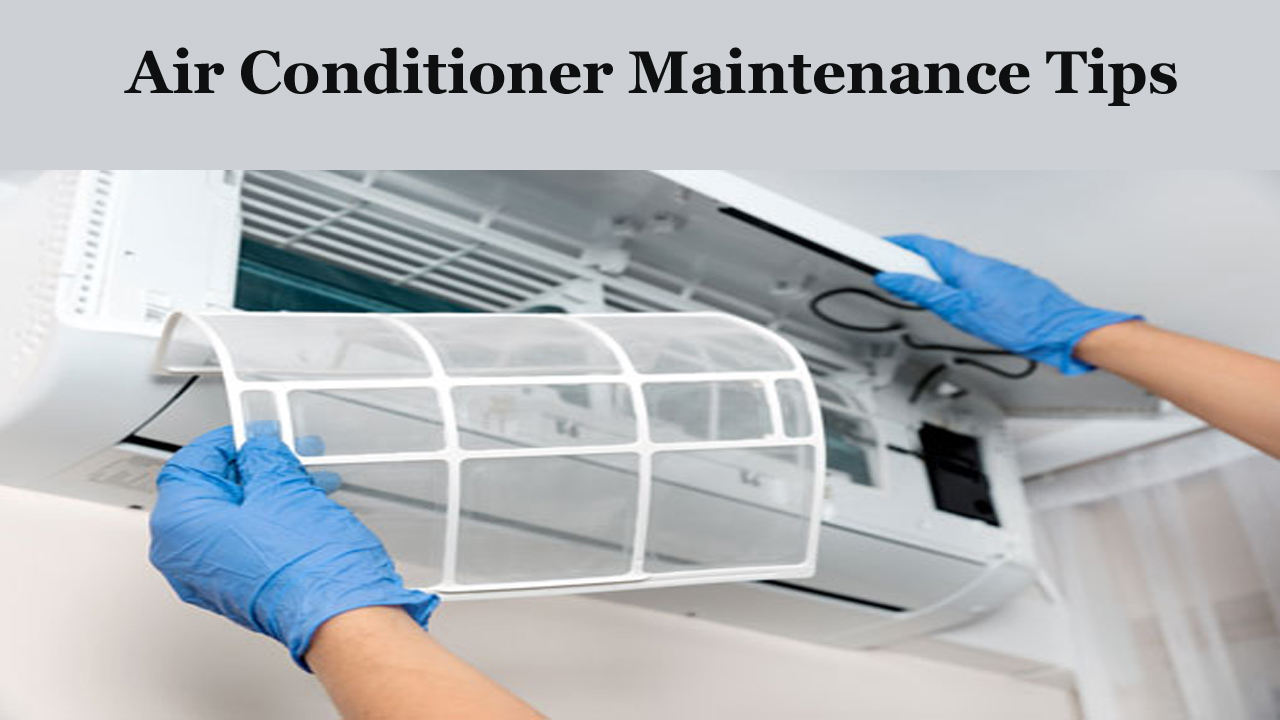Summer has arrived then; now is the time to start allowing your Air Conditioning Units.
It takes little time for summer temperatures to set in and for you to run on the AC unit.
To help ensure you’ll have all the cool air you want indoors, we’ve prepared a list of pre-season A/ C conservation tips.
There’s nothing worse than a broken air exertion system during a heat surge. These simple tips help avoid expensive repairs and keep your air conditioner running at peak performance.
Air conditioners can also be utilized in homes, services, buses, and other enclosed spaces to provide some effective comfortness and healthy inner terrain.
There are various types of air conditioners, including central air conditioning systems, window units, portable units, and ductless mini-split systems, each with their own benefits and drawbacks depending on the specific application.
Regular maintenance and cleaning are important to ensure an air conditioner’s proper functioning and longevity.
If a device requires repairs, you can save money by bringing it to the shop yourself and avoiding a service call fee. When it’s chilly outdoors, keeping your window unit free of snow and ice will help to increase its lifespan.
You have two options: conceal the surface or remove it completely and store it. Minimizing the requirement/necessities related to air conditioner to counteract the extra heat generated in a home, air conditioners may overheat. If your crawl space has incomplete or inadequate insulation, one house maintenance task that may reduce the stress on your AC is to add more insulation.
Why AC Maintenance Is Essential & How To Do That?
Various components that make up your air conditioning system cool your home’s air. If one of these components starts to malfunction, it will impact the entire system. Therefore, it’s crucial to identify minor issues early because doing so means those bigger issues won’t develop. Additionally, regular maintenance guarantees that an air conditioner will function effectively for its useful life, reducing energy costs.
- Check the Outdoor AC Unit- Here, your out-of-door AC unit have to be cleaned and cleared from debris. Collecting leaves, lawn, and occasionally scrap is ineluctable when your system draws in air. This puts a strain on the AC unit and can indeed beget endless damage if left to accumulate. So, you have to be more conscious to check and clean the inner coils, surface coverings, and other AC factors prior rainfall turns cold.
- Keep the outdoor unit clean: The outdoor unit of your air conditioner can also end up dirty over time. Remove any debris, leaves, or grass clippings from around the team. Keeping your AC system’s exterior unit clean is essential to routine upkeep to ensure that the system runs smoothly and effectively.
- Check the thermostat: It stands to reason to put together an approach for maintaining your home’s dampness and temperature, whether summer or cold. Your thermostat will support you to find the AC function more effectively and eventually save you from wasting money on electricity prices! A controlled thermostat can regulate the moisture and temperature according to your plans. Make sure you have concern on changing your thermostat too.
- Inspect the ductwork: Inspect the area for any visible signs of damage, such as cracks, holes, or disconnected sections. Inspect the tubes for rust or rusting periodically. Check the ducts for leaks using a smoke pen or another technique. Leaks can decrease system effectiveness and result in higher energy costs.
- Check the electrical connections: Inspect the area for any visible signs of damage, such as cracks, holes, or disconnected sections. Look up the tubes for rust or rusting as well. Check the ducts for leaks using a smoke pen or another technique. Leaks can decrease system effectiveness and result in higher energy costs. In addition, loose or corroded electrical connections can cause your air conditioner to stop working. Have a professional inspect and tighten any connections.
- Lubricate moving parts: Lubricating an AC system’s moving parts is an important component of regular upkeep to ensure that the system functions without issue. When dealing with the AC system, it is critical to follow all safety protocols and to contact the manufacturer’s directions or an expert HVAC specialist if you are uncertain or uneasy completing any tasks related to AC system upkeep. Moving parts in your air conditioner can wear out over time. Have a professional lubricate them to reduce friction and prolong the life of your unit.
- Test the capacitors: Capacitors are electronic components that help your air conditioner start-up. Have a professional test them to make sure they’re working correctly. Testing an AC system’s capacitors is essential to routine maintenance to ensure that the system works effectively and reliably. If you need to be more positive about testing the capacitors or spot any major problems, it’s best to contact an expert HVAC technician to inspect and repair the system.
- Clean the evaporator coil: The evaporator coil in your air conditioner can also get dirty over time. Have a professional clean it to ensure your unit is running efficiently. Cleaning the evaporator coil of an AC system is an important part of regular maintenance to ensure that the system operates efficiently and reliably. If you need help cleaning the evaporator coil or if you notice any significant issues, it’s best to call a professional HVAC technician to inspect/check and clean the system.
- Check the drain line: The drain line in your air conditioner can get clogged with algae or debris. Have a professional clean it to prevent water damage. Checking an AC system’s drain line is an essential component of routine maintenance to ensure that the system works effectively and reliably. If you are still determining how to examine the drain line or spot any major problems, it is best to contact an expert HVAC technician to inspect and repair the system.
- Test the safety switches: Your air conditioner has safety switches that shut it off if there’s an issue. Have a professional test them to make sure they’re working properly. Testing an AC system’s safety switches is an essential component of routine maintenance to ensure that the system works securely and reliably. If you need help testing the safety valves or spotting any major problems, it’s best to contact an expert HVAC specialist to examine and fix the system.
- Check the blower motor: The blower motor in your air conditioner can wear out over time. Have a professional inspect and replace it if necessary. Checking an AC system’s blower motor is an essential component of routine maintenance to ensure that the system works effectively and efficiently. If you are still determining how to examine the blower motor or spot any major problems, it is best to contact an expert HVAC technician to inspect and repair the system.
- Schedule regular maintenance: Finally, make sure to schedule regular maintenance for your air conditioner. This will help ensure it’s running efficiently and catch any issues before they become major problems.
- Keep Coils, Registers, and Filters Clear: Regular air filter renewal, condenser coil cleaning, and register cleaning can all increase airflow through your Air conditioning system. The condenser coils are found on the outdoor unit, while the ducts and air filters are typically situated indoors. We advise contacting the experts at D&D Plumbing, Heating & Air Conditioning for proper maintenance if this maintenance is uncomfortable or overwhelming.
- Test Your Smoke Alarms: Spring and summer months are notorious for house fires. Ensure your smoke alarms are in good working order to alert you if a fire starts. Replace any batteries that might be low, and check the entire unit to ensure it’s clean and free of dirt or dust build-up.
- Test the Unit: Once you’ve seen the air conditioner fully dry, give it a test run. Please restart the condenser unit’s power supply. The repair of air conditioners must be ongoing. As due to the summer heat, it is advisable to maintain a system that passes via various rooms in your home. The cooled and dehumidified air is dispersed throughout the home by the air handler, also called the furnace fan. It is not a DIY job to fix the sealed refrigeration system in your central air conditioner. A qualified expert should handle them.
A New Air Conditioner May Need To Be Installed If:
- The air conditioner produces strange noises, which could indicate that something is broken or loose inside the unit and needs to be repaired.
- Weird odors could indicate the presence of mold in the appliance or a problem with the wire sheathing.
- If the air is not cold or moves less forcefully than usual, there may be a coolant leak.
- You observe moisture or water dripping from the device where it shouldn’t be.
- If your device is older than ten years, you should replace it.
- Repair costs occasionally exceed new costs. Additionally, it implies that you have a unit that won’t malfunction suddenly.
Conclusion
It’s crucial to adhere to some fundamental maintenance guidelines to keep your air conditioner operating at peak efficiency and prevent expensive repairs. By doing this, you can ensure that your air conditioner is functional during heat surges and that breaking windows isn’t the only thing you need to be concerned about this summer. While these suggestions might not cover every potential problem that could emerge with your AC unit, they will help keep it in top condition and avoid any major repairs. Check out our blog for more details if you’re curious to learn more about air conditioning repair.
Every home should have an air conditioner because they can help maintain a comfortable indoor climate during the summer. You can even ensure that your air conditioner is functioning at its peak efficiency and can give the cooling effect you need by paying attention to these effective guidelines. Then, consider these suggestions as the summer heats up and your air conditioner requires more care.

